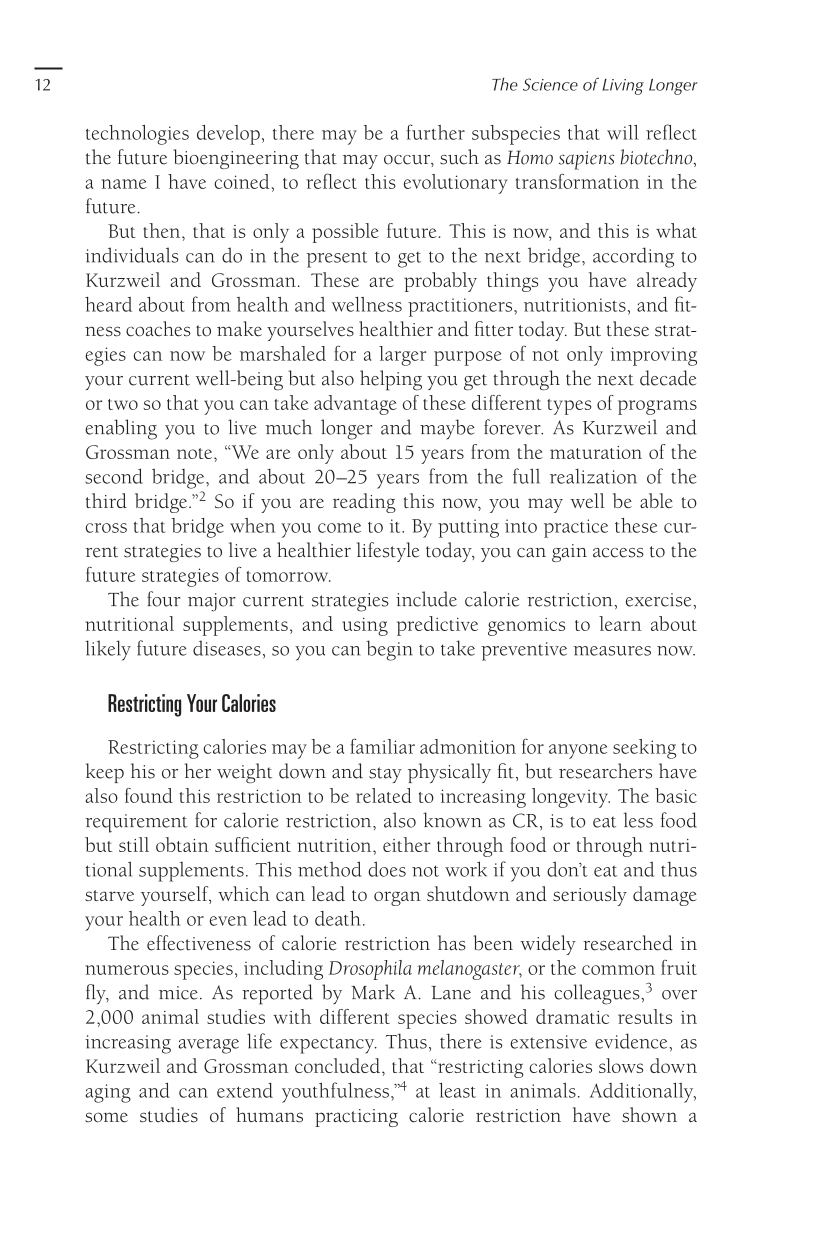12 The Science of Living Longer
technologies develop, there may be a further subspecies that will reflect
the future bioengineering that may occur, such as Homo sapiens biotechno,
a name I have coined, to reflect this evolutionary transformation in the
future.
But then, that is only a possible future. This is now, and this is what
individuals can do in the present to get to the next bridge, according to
Kurzweil and Grossman. These are probably things you have already
heard about from health and wellness practitioners, nutritionists, and fit-
ness coaches to make yourselves healthier and fitter today. But these strat-
egies can now be marshaled for a larger purpose of not only improving
your current well-being but also helping you get through the next decade
or two so that you can take advantage of these different types of programs
enabling you to live much longer and maybe forever. As Kurzweil and
Grossman note, “We are only about 15 years from the maturation of the
second bridge, and about 20–25 years from the full realization of the
third bridge.”2 So if you are reading this now, you may well be able to
cross that bridge when you come to it. By putting into practice these cur-
rent strategies to live a healthier lifestyle today, you can gain access to the
future strategies of tomorrow.
The four major current strategies include calorie restriction, exercise,
nutritional supplements, and using predictive genomics to learn about
likely future diseases, so you can begin to take preventive measures now.
Restricting Your Calories
Restricting calories may be a familiar admonition for anyone seeking to
keep his or her weight down and stay physically fit, but researchers have
also found this restriction to be related to increasing longevity. The basic
requirement for calorie restriction, also known as CR, is to eat less food
but still obtain sufficient nutrition, either through food or through nutri-
tional supplements. This method does not work if you don’t eat and thus
starve yourself, which can lead to organ shutdown and seriously damage
your health or even lead to death.
The effectiveness of calorie restriction has been widely researched in
numerous species, including Drosophila melanogaster, or the common fruit
fly, and mice. As reported by Mark A. Lane and his colleagues,3 over
2,000 animal studies with different species showed dramatic results in
increasing average life expectancy. Thus, there is extensive evidence, as
Kurzweil and Grossman concluded, that “restricting calories slows down
aging and can extend youthfulness,”4 at least in animals. Additionally,
some studies of humans practicing calorie restriction have shown a
























































































































































































































